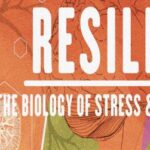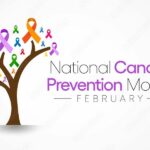Commonly Prescribed Medications For Anxiety
*Special Note: All of the above medications are benzodiazepines except for BuSpar. Benzodiazepines are high risk for abuse and dependency. BuSpar is considered effective & safe. Many antidepressant medications now also produce antianxiety benefits. Possible Side Effects of Medications for AnxietyThe most common side effects for benzodiazepines are drowsiness and dizziness. Other possible side effects include:
Possible side effects from buspirone (BuSpar) include:
Common side effects from beta-blockers include:
In addition, beta-blockers generally are not recommended for people with asthma or diabetes because they may worsen symptoms.
Cognitive-Behavioral Therapy works very well to reduce or eliminate anxiety in a significant number of cases. Non-medication interventions should always be explored as an alternative in the treatment & management of anxiety disorders. |
 Type a medication name in the box below to view more detailed information: Type a medication name in the box below to view more detailed information:
Treating Anxiety with MedicationAntidepressants, anti-anxiety medications, and beta-blockers are the most common medications used for anxiety disorders. Anxiety disorders include:
AntidepressantsAntidepressants were developed to treat depression, but they also help people with anxiety disorders. SSRIs such as fluoxetine (Prozac), sertraline (Zoloft), escitalopram (Lexapro), paroxetine (Paxil), and citalopram (Celexa) are commonly prescribed for panic disorder, OCD, PTSD, and social phobia. The SNRI venlafaxine (Effexor) is commonly used to treat GAD. The antidepressant bupropion (Wellbutrin) is also sometimes used. When treating anxiety disorders, antidepressants generally are started at low doses and increased over time. Some tricyclic antidepressants work well for anxiety. For example, imipramine (Tofranil) is prescribed for panic disorder and GAD. Clomipramine (Anafranil) is used to treat OCD. Tricyclics are also started at low doses and increased over time. MAOIs are also used for anxiety disorders. Doctors sometimes prescribe phenelzine (Nardil), tranylcypromine (Parnate), and isocarboxazid (Marplan). People who take MAOIs must avoid certain food and medicines that can interact with their medicine and cause dangerous increases in blood pressure. For more information, see the section on medications used to treat depression. BenzodiazepinesCAUTION: Benzodiazepines have a high propensity for abuse among those who are opioid dependent. ADS does not admit clients into the Opioid Treatment Program who test + for benzodiazepines. The anti-anxiety medications called benzodiazepines can start working more quickly than antidepressants. The ones used to treat anxiety disorders include:
Buspirone (Buspar) is an anti-anxiety medication used to treat General Anxiety Disorder. Buspar takes at least two weeks to begin working since it must build up to a therapeutic level in the bloodstream. An advantage of Buspar for recovering individuals is that it does not have the abuse potential of benzodiazepines. Beta-blockersBeta-blockers control some of the physical symptoms of anxiety, such as trembling and sweating. Propranolol (Inderal) is a beta-blocker usually used to treat heart conditions and high blood pressure. The medicine also helps people who have physical problems related to anxiety. For example, when a person with social phobia must face a stressful situation, such as giving a speech, or attending an important meeting, a doctor may prescribe a beta-blocker. Taking the medicine for a short period of time can help the person keep physical symptoms under control. People can build a tolerance to benzodiazepines if they are taken over a long period of time and may need higher and higher doses to get the same effect. Some people may become dependent on them. To avoid these problems, doctors usually prescribe the medication for short periods, a practice that is especially helpful for people who have substance abuse problems or who become dependent on medication easily. If people suddenly stop taking benzodiazepines, they may get withdrawal symptoms, or their anxiety may return. Therefore, they should be tapered off slowly.
Buspirone and beta-blockers are similar. They are usually taken on a short-term basis for anxiety. Both should be tapered off slowly. Talk to the doctor before stopping any anti-anxiety medication.  |
Source: National Institute of Mental Health











